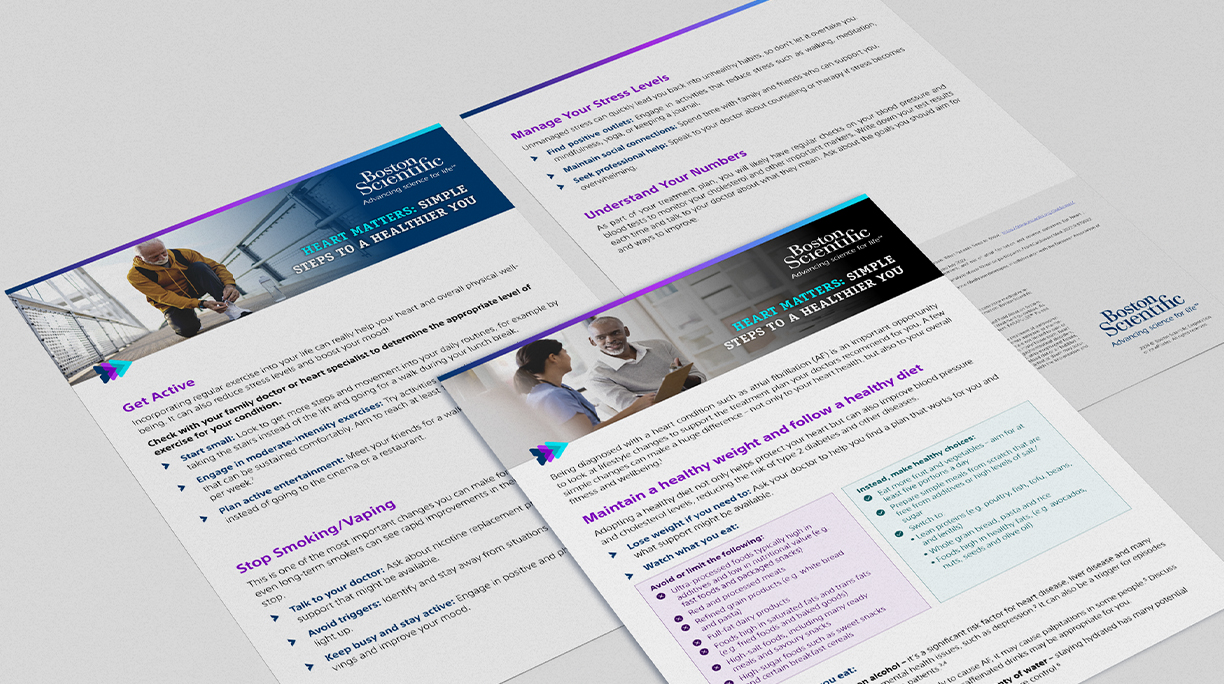What are lifestyle modifications?
Being diagnosed with a heart condition such as atrial fibrillation (AFib) is an important opportunity to look at lifestyle changes to support the treatment plan your doctors recommend for you. A few simple changes can make a huge difference – not only to your heart health, but also to your overall fitness and wellbeing.1
Types of lifestyle modifications:
- Being overweight or obese may contribute to AFib. Losing weight through a combination of healthy eating and regular physical activity can help reduce AFib episodes.
Focus on a diet rich in fruits, vegetables, whole grains, lean proteins (such as poultry, fish, beans, and nuts), and low-fat dairy products.
Limit saturated fats, trans fats, cholesterol, and sodium (salt). Avoid processed foods and sugary beverages.
Aim for at least 150 minutes of moderate-intensity aerobic exercise (such as brisk walking, swimming, or cycling) per week.
Exercise helps maintain a healthy weight, lower blood pressure, and improve overall cardiovascular health, which may reduce AFib episodes.
Chronic stress may trigger AFib episodes. Practice stress-reducing techniques such as deep breathing, meditation, yoga, or hobbies that you enjoy.
Ensure you get enough sleep each night, as poor sleep may also contribute to AFib.
- Smoking is a major risk factor for cardiovascular disease, including AFib. If you smoke, quitting may significantly improve your heart health and reduce AFib episodes.
- High blood pressure and high cholesterol levels may increase the risk of AFib. Monitor these levels regularly and work with your healthcare provider to manage them through lifestyle changes and, if necessary, medications.
- Dehydration may sometimes trigger AFib. Drink plenty of water throughout the day to maintain hydration, especially during hot weather or when exercising.
- Some medications, particularly decongestants and certain cold medicines, may trigger AFib or interact with medications used to treat AFib. Consult your doctor before taking any over-the-counter medications.
- If you have other medical conditions such as diabetes or sleep apnea that contribute to AFib, follow your treatment plan to manage these conditions effectively.
More questions about lifestyle modifications?
Learn more about lifestyle modifications in the management of atrial fibrillation.

